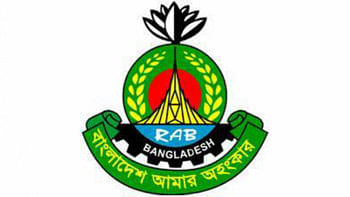Paddy prices rebound
The prices of paddy have risen on the back of the government's purchase and duty spike to support farmers, who incurred losses for low prices in the face of higher production and imports last year, said some millers and farmers.
Prices of coarse paddy, mainly hybrid, have increased by more than Tk 200 to Tk 650-Tk 675 each maund in the last two months.
The prices of medium- and fine-quality paddy also rose in the same period, said KM Layek Ali, general secretary of the Bangladesh Auto, Major and Husking Mills Association.
“This is mainly because of paddy procurement by the government at higher prices. Paddy prices started rising as soon as the government began purchasing,” he added.
The food ministry in April said the Directorate General of Food would buy seven lakh tonnes of paddy at Tk 23 per kilogram during the boro harvesting season.
The boro paddy harvesting season ended in June.
It also announced to buy six lakh tonnes of rice at Tk 32 each kilogram from the boro harvest.
As of July 21, the food office bought 6.33 lakh tonnes of paddy since it began procurement on May 5.
Also, a slump in import fuelled prices of the staple food as the oversupply that the market recorded last year depleted gradually.
“Now there is no abundant surplus in the market. The supply of paddy in the local markets is very low,” said Nirod Boron Saha, a rice and paddy wholesaler and miller in Naogaon, one of the major wholesale centres in the north.
It appears that big farmers and stockists are keeping paddy on hold believing that there will be no rice imports from India this year, he added.
Between July 1 and July 26, only 150 tonnes of rice have been imported. In fiscal 2015-16, rice imports slumped to 2.57 lakh tonnes from 14.90 lakh tonnes a year earlier, according to food ministry data.
Saha, also the president of the paddy and rice wholesalers' association in Naogaon, said paddy market began rebounding at the end of May after remaining sluggish for months amid higher supply.
“But the tragedy is that many farmers incurred huge losses before the government began buying,” he said.
Farmers were not benefitted by the government's purchases at higher prices, although the growers' identity cards were used and bills issued in their names.
In many cases, political activists took ID cards from farmers to supply paddy to the government, according to Saha.
The paddy price spiral has led to the rise in rice prices, he added. Data from the Department of Agricultural Marketing shows that the average wholesale and retail price of coarse rice, known as swarna, stood at Tk 29.5 and Tk 32 each kilogram on Tuesday in Dhaka.
In the middle of May, the wholesale and retail prices of coarse rice were Tk 23.5 and Tk 26.50 per kilogram respectively, according to food ministry data.
Md Main Uddin Manik, a rice trader at Karwan Bazar, said the supply of coarse and medium varieties of rice has been slightly squeezed for the government procurement and falling imports. As a result, the prices of rice have edged up.
“The rice price spiral will give incentive to farmers in the current transplantation period of aman. They are likely to take better care of their crops,” said Md Badrul Hasan, additional director general of the Directorate General of Food.

 For all latest news, follow The Daily Star's Google News channel.
For all latest news, follow The Daily Star's Google News channel. 



Comments